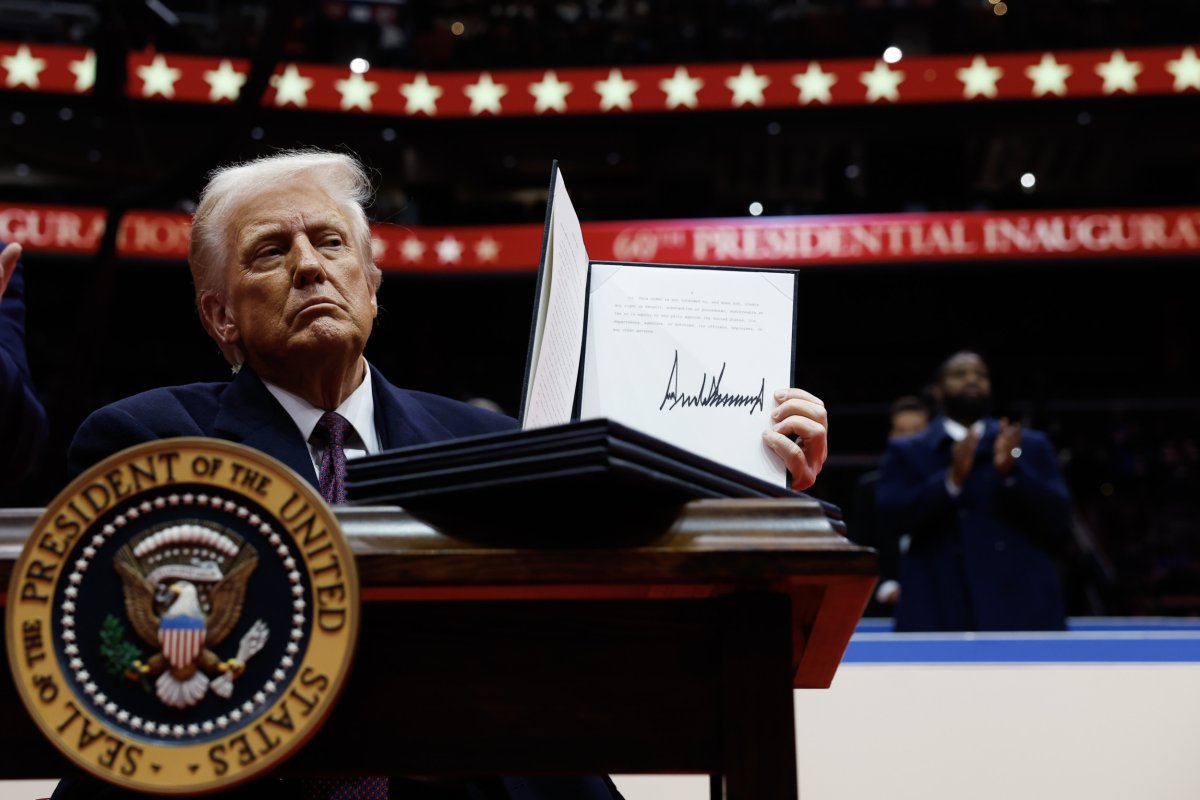President Donald Trump is witnessing the limitations of his executive orders as they face legal challenges and opposition, a legal expert has said.
Joyce Vance, who served as U.S. attorney for the Northern District of Alabama during the Barack Obama administration, made the remarks in her Civil Discourse blog on Wednesday.
Newsweek has contacted the White House and Vance for comment via email.
Why It Matters
Despite Trump indicating sweeping changes would be enacted from day one of his new term, Vance is suggesting that some may be restricted in how they are implemented or enforced, even with a GOP trifecta in government.

What to Know
Trump signed 26 executive orders on Monday, the first day of his second term in office. These included establishing the newly formed Department of Government Efficiency (DOGE), reintroducing the Remain in Mexico policy and designating international cartels and gangs as foreign terrorist organizations.
Writing in her Civil Discourse blog, Vance said, "one big limitation" of the president's executive orders is that they can only be implemented within the executive branch and must comply with the Constitution and federal laws.
Some of the orders signed by Trump on Monday are already facing legal challenges. The National Treasury Employees Union (NTEU) is suing the Trump administration for reintroducing Schedule F, which strips federal employees of certain employment protections, making it easier to fire them.
Trump also signed an executive order aiming to end the right to citizenship for some children born in the U.S. The move is being challenged by Democrats and civil rights groups, who argue that ending birthright citizenship violates the Constitution's 14th Amendment, which states that all persons "born or naturalized in the United States" are citizens of the U.S.
New York Attorney General Letitia James, who previously sued Trump for fraudulently inflating his wealth and asset values, has joined 17 other states, as well as San Francisco and Washington, D.C., in suing Trump over the birthright citizenship order.
Trump also signed an executive order to rename the Gulf of Mexico as the Gulf of America within 30 days. However, other countries are not obligated to accept the name change.
What People Are Saying
Joyce Vance, in her Civil Discourse blog: "Despite saying he'd sign around 200 [executive orders], the actual total was 26, compared to nine first-day orders by Joe Biden and one by Trump during his prior presidency. That gives you some sense of how prepared Trump and his Project 2025 friends were.
"Executive orders are not a magic wand, though. The president can only use them to direct activity within the executive branch; he can't make other entities—private businesses, universities, podcasters, individuals, or anyone else outside the executive branch—comply with his dictates. That's one big limitation on his ability to act. Orders have to be in compliance with the Constitution and federal laws. They can't just, say, undo a constitutional protection for birthright citizenship. If they do, they'll be challenged in federal court, which, at a minimum, involves a sizable delay."
President Donald Trump, during Monday's inauguration speech: "Today, I will sign a series of historic executive orders. With these actions, we will begin the complete restoration of America and the revolution of common sense. It's all about common sense."
NTEU National President Doreen Greenwald, in a Tuesday statement: "The American people deserve to have day-to-day government services in the hands of qualified professionals who are committed to public service and stay on the job regardless of which political party holds the White House. Yesterday's executive order is a dangerous step backward to a political spoils system that Congress expressly rejected 142 years ago, which is why we are suing to have the order declared unlawful."
New York Attorney General Letitia James, in a Tuesday statement: "This fundamental right to birthright citizenship, rooted in the 14th Amendment and born from the ashes of slavery, is a cornerstone of our nation's commitment to justice. Our Constitution is not open to reinterpretation by executive order or presidential decree. President Trump's attempt to undermine the fundamental right to birthright citizenship is not just unconstitutional, it is profoundly dangerous."
What Happens Next
Each of the legal challenges to Trump's executive orders could be argued in court over the coming months.




















 English (US) ·
English (US) ·